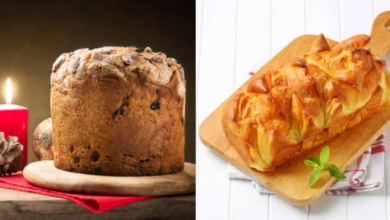The Surprising Truth About Brioche Bread: It’s Made With Milk!
What To Know
- A wetter dough will produce a softer, more open-crumbed brioche, while a drier dough will yield a denser loaf.
- Once the dough is prepared, it is left to rise in a warm place until doubled in size.
- The rich flavor and tender texture of brioche make it a culinary delight that is sure to impress any palate.
Brioche, the delectable French pastry known for its golden crust and fluffy interior, has captivated taste buds for centuries. But one question that often arises is: “Is brioche made with milk?” To unravel this culinary mystery, let’s delve into the ingredients and origins of this beloved treat.
The Role of Milk in Brioche
Yes, brioche is indeed made with milk. Milk plays a crucial role in giving brioche its characteristic richness and tenderness. It contributes to the dough’s hydration, helping it to form a smooth and pliable texture. Additionally, milk contains proteins that aid in gluten development, resulting in a bread that is both soft and slightly chewy.
Historical Origins and Milk’s Significance
The origins of brioche can be traced back to the Middle Ages in Normandy, France. During this time, milk was a staple ingredient in many baked goods, including bread. As brioche evolved over the centuries, milk remained an essential component, contributing to its distinctive flavor and texture.
Types of Milk Used in Brioche
Traditionally, brioche is made with whole milk. However, various types of milk can be used, including:
- Whole milk: Creates a richer and more flavorful brioche.
- Low-fat milk: Produces a lighter brioche with a slightly less decadent taste.
- Non-dairy milk: For those with dairy sensitivities or allergies, non-dairy milk alternatives such as almond milk or oat milk can be substituted.
Milk and the Brioche Dough
When making brioche, the milk is typically warmed slightly before being added to the dry ingredients. This helps to dissolve the sugar and activate the yeast, resulting in a dough that rises more effectively. The amount of milk used in brioche dough varies depending on the desired consistency. A wetter dough will produce a softer, more open-crumbed brioche, while a drier dough will yield a denser loaf.
Other Essential Brioche Ingredients
In addition to milk, brioche dough typically contains:
- Flour: Provides the structure and backbone of the bread.
- Sugar: Adds sweetness and helps to create the golden crust.
- Yeast: The leavening agent that causes the dough to rise.
- Butter: Adds richness, flavor, and flakiness to the brioche.
- Eggs: Contribute to the dough’s structure and add color to the crust.
The Art of Baking Brioche
Once the dough is prepared, it is left to rise in a warm place until doubled in size. The risen dough is then punched down, shaped, and left to rise again before being baked. The baking process is crucial to achieve the perfect balance of crust and crumb.
Enjoying the Brioche Masterpiece
Brioche is a versatile bread that can be enjoyed in various ways. It makes for a delectable breakfast treat, slathered with butter or jam. It can also be used to create savory sandwiches or as a side dish for soups and stews. The rich flavor and tender texture of brioche make it a culinary delight that is sure to impress any palate.
Frequently Asked Questions
Q: Can I make brioche without milk?
A: Yes, but the brioche will have a different texture and flavor. Non-dairy milk alternatives can be substituted, or water can be used instead. However, the brioche may not be as rich or fluffy.
Q: What is the best type of milk to use in brioche?
A: Whole milk is the traditional choice, but low-fat milk or non-dairy milk can be used as well. The type of milk you use will affect the richness and flavor of the brioche.
Q: Why is my brioche dough too wet?
A: If your dough is too wet, it may not rise properly. Add a little more flour, 1 tablespoon at a time, until the dough reaches the desired consistency.
Q: How do I know when my brioche is done baking?
A: The brioche is done baking when it is golden brown and sounds hollow when tapped on the bottom.
Q: How should I store brioche?
A: Store brioche in an airtight container at room temperature for up to 3 days. To extend its shelf life, you can freeze brioche for up to 2 months.
